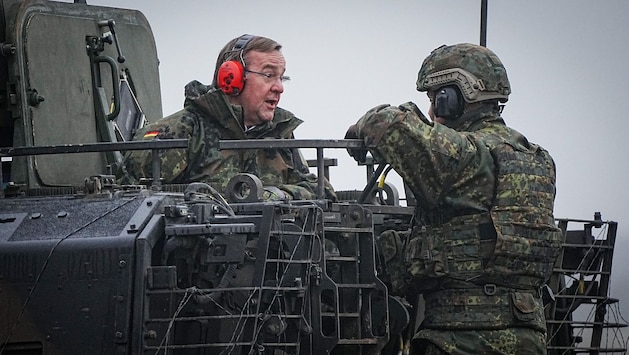Federal Defense Minister Boris Pistorius (SPD) no longer considers the special fund of 100 billion euros to be sufficient in view of the new challenges for the Bundeswehr.
“The 100 billion will not be enough,” Pistorius told the Süddeutsche Zeitung. “We have new maintenance costs with every new system. With every new device, there are new and higher running costs.” The successor to Christine Lambrecht, who has resigned, also believes that the regular budget of around 50 billion euros a year is not enough in the long run. “I don’t think that’s enough,” said Pistorius.
Pistorius’ demands for more money also fit into a confidential list of replacement purchases for military equipment shipped to Ukraine. It is about additional billions in investments, the financing of which has not yet been clarified for the most part. For example, 14 new self-propelled howitzers 2000 and five Mars II multiple rocket launchers are to be procured for the German armed forces. Also on the list are 50 Dingo transport vehicles, 500 Stinger anti-aircraft missiles, 100,000 hand grenades, 22 million rounds of hand ammunition, and 28,000 combat helmets. It is also foreseeable that replacements for the 14 Leopard 2 A6 main battle tanks that will be delivered to Ukraine will have to be procured. Due to inflation and increased production costs, however, replacement will be more expensive than the purchases made at the time.
Pistorius conceded that the Bundeswehr urgently and quickly needed supplies, also because of the arms and now also tank deliveries to Ukraine, which was attacked by Russia. “Tanks aren’t just somewhere on the shelf to take away. They have a delivery time, and that’s not three weeks. And ammunition doesn’t grow on trees and just wants to be picked,” said Pistorius.
Germany will not be able to meet the demand in the short term. “In the medium and long term, we need to build an armaments industry in Europe that can do this. Not everyone needs to develop every weapon system. And we should come to standardized weapon systems in Europe.” He announced a close alliance with the industry to expand production capacities and speed up deliveries. Next week he will sit down with the arms industry at the table. “We have to be faster in procurement,” said the minister.








